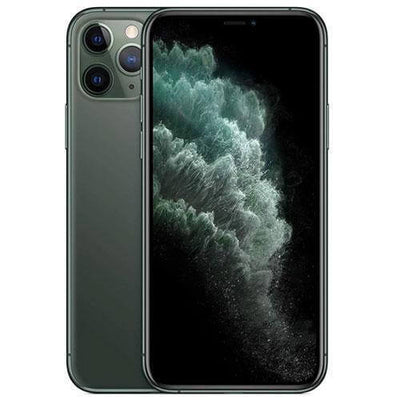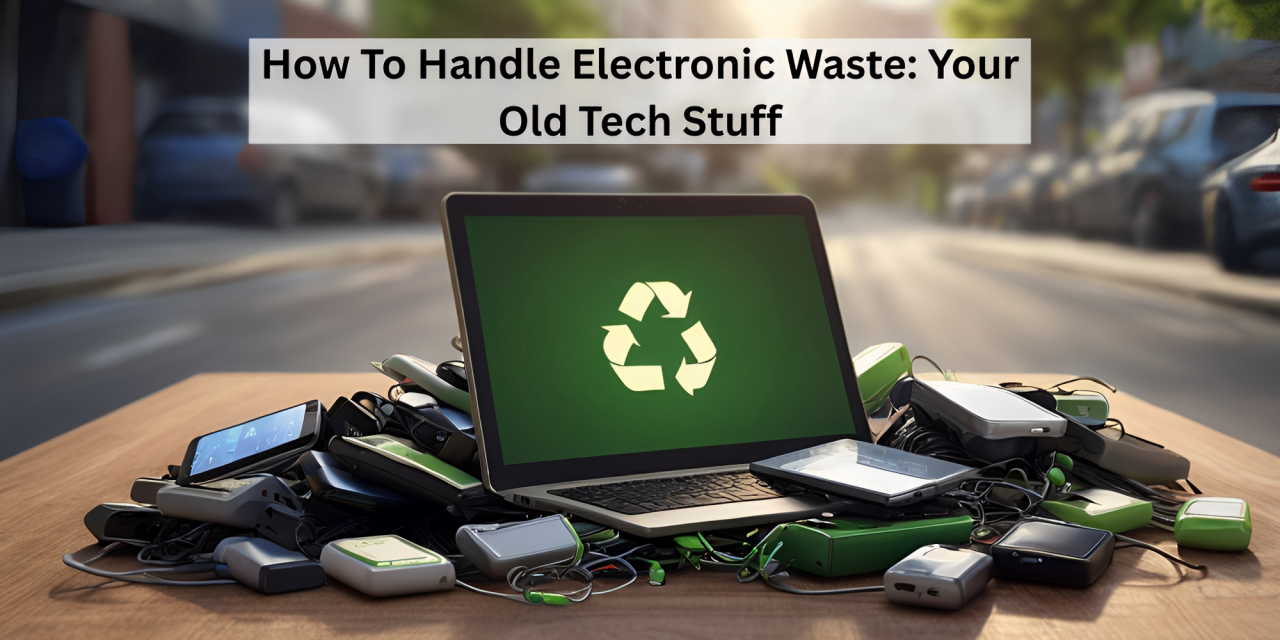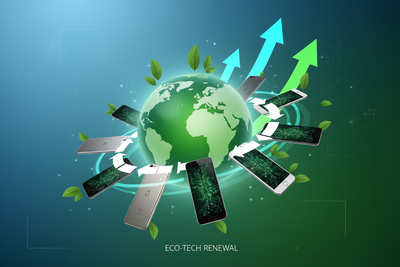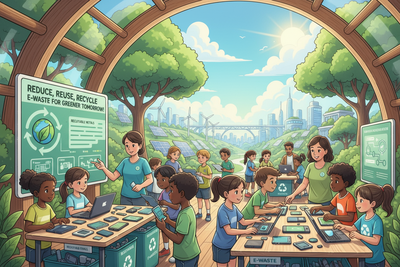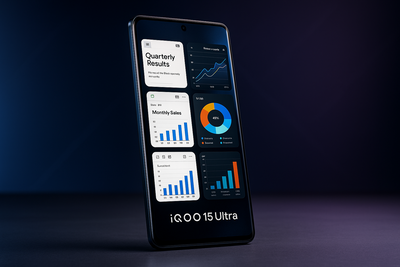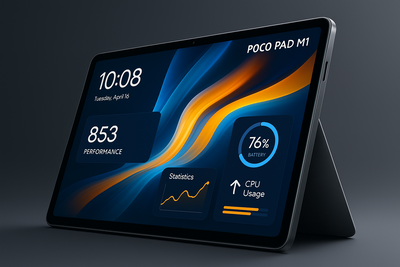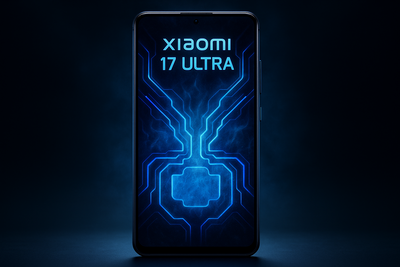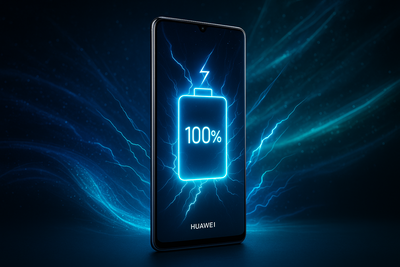Introduction: Why Handling Electronic Waste Matters
In today's digital world, we all have gadgets that do break sooner or later or become outdated. Handling electronic waste is a growing challenge as more people are now replacing old phones, laptops, and any other electronic devices that they own. Taking the proper steps toward handling electronic waste guarantees that the environment is captured, resources conserved, and recycling industries supported. But the truth is, many people don't know how toxic it could be if they disposed of their electronics soulfully .That is why handling electronic waste becomes important for every household and business. This guide will take you through starting doing it right when it comes to handling electronic waste if you are wondering where to take your old tech stuff.
What Is Electronic Waste and Why Is It Harmful?
The first step toward proper handling of electronic waste is to know about it. Electronic waste, or e-waste, refers to any electronic device that has ceased working, become outdated, or is lying idle - like computers, televisions, smartphones, and chargers. Improper disposal of electronic waste has the potential of leaking toxic substances like lead, mercury, cadmium, and others into nature. The necessity of handling electronic waste arises because inappropriate harmful elements create water, soil, and air pollution. In addition, improper disposal of e-waste leads to a chronic risk factor in health problems for both humans and wildlife. Therefore, it is not only about cleaning up your drawer that you learn about handling e-waste: it is about your health and the health of your planet.
Best Practices for Handling Your Old Tech Devices
If you are serious about the recycling of electronic waste, then simply kick start your efforts by getting all of the old technology you have around together. Assemblies of unused phones, broken earphones, chargers, batteries, and unused laptops. Arranging all those items makes handling them much easier-they could even be split into 'reusable' and 'recycling items. ' One good way to deal with electronic waste is through certified e-waste recyclers. They ensure that dismantling takes place safely and the waste is disposed of properly. Also, one must delete personal data just before giving away electronic gadgets. A completely responsible view toward handling e-waste also ensures the vehicle's safety, privacy, and environmental consideration.
Recycling vs. Reusing: What’s Better for E-Waste?
You might also wonder whether to recycle or reuse electronic waste. Reusing is the first ideal step to proper disposal of electronic waste, especially if the gadget works. You can donate it to schools, NGOs, or someone needy. If reuse is impossible, recycling is the next best option for electronic waste disposal. Certified recycling centers recover precious materials such as copper and gold from electronics. It helps not only in reducing waste to the landfill but also boosts the economy. Choosing the right path while handling electronic waste can really bring a difference.
Where Can You Drop Off Your E-Waste Responsibly?
It has never been easier to find the best service regarding the handling of electronic waste. Apple, Samsung, and Dell have introduced take-back or recycling programs for handling electronic waste. You can also handle electronic waste through one of the government-approved collection centers or recycling plants. Some supermarkets and various electronic shops are starting to accept even small items like batteries and chargers. You can try mobile recycling vans or annual e-waste drives happening in your city. The key to handling electronic waste is finding an authorized location that disposes of or recycles tech safely and legally.
Digital Decluttering: Organize Before You Dispose
Digital decluttering is a useful start before handling electronic waste. Learn to delete personal data, sign out of all your accounts, and perform a factory reset. That step in handling electronic waste protects your privacy and ensures you remain safe from identity theft. So, check for accessories for reuse, like removable memory cards or SIM cards. Good digital hygiene helps a lot in securing the handling of electronic waste. Ensuring that your device is secure and clean is important when giving it away, recycling, or storing. Digital cleaning is a responsible yet smart habit of handling electronic waste.
The Role of Tech Companies in E-Waste Management
Tech companies are the most significant partners in the disposal of electronic waste. Many companies have accepted this responsibility through Extended Producer Responsibility programs. These programs assert that brands deal with products at the end of their lives. By promoting returns and providing recycling bins, companies help to handle electronic waste at large. Government regulations also make certain manufacturers avoid hazardous materials, thus protecting electronic wastes from risk. By supporting responsible brands, we also support innovation and better waste management policies. As a consumer, you can also contribute by choosing services such as Fonezone, where you can responsibly recycle your devices and ensure they are handled safely.
Eco-Friendly Alternatives: Reduce E-Waste from the Start
Preventing the electronic waste in front of us would be the best approach. Buy electronic gadgets that are durable, upgradable, and repairable. Avoid upgrading your gadgets unnecessarily; this will limit how often you are engaged in handling electronic waste. Choose products with an environmental certification or those made of recycled materials. The use of universal chargers and batteries that last is an alternative way of supporting an eco-friendly lifestyle. Reducing consumption is one loud voice in handling electronic waste from the outset. When we adopt such sustainable tech habits, we reduce waste and contribute to a cleaner planet.
Educating Others: Spread Awareness About E-Waste
Awareness plays a key role in handling electronic waste at the community level. Teach your friends, family, and colleagues about safe disposal practices. Knowing how to organize e-waste collection drives or simply share picks on social media are trivial but potent steps toward waste management. Schools or companies could also set up workshops and awareness programs. The more the community learns, the higher the adoption rates will be for smart electronic waste management strategies. Community unity can really make a difference in the global reduction of tech waste.
Conclusion: Every Small Step Counts
In our tech-driven life, it is now everybody's business to handle electronic waste. Every action taken on handling electronic waste—whether through donation, recycling, or just reduction of usage—goes into making the earth a better place. Be reminded that throwing your phone into the trash is not just a careless act; it is one that harms the world. Be considerate for every old gadget you retire. Support the correct way of handling electronic waste and propagate it. Your first step may mobilize a movement. Beginning today, let electronic waste handling be a culture for the sustainable future.
Frequently Asked Questions
Q.1. What are examples of electronic waste?
Old phones, chargers, computers, televisions, and batteries are common types of electronic waste.
Q.2. Why is it important to handle electronic waste properly?
Proper handling avoids environmental pollution and prevents harmful chemicals from entering the ecosystem.
Q.3. Can I recycle my electronics at home?
No, electronics should be taken to certified recycling centers or returned through brand recycling programs.
Q.4. How can I safely delete data before recycling a device?
Use factory reset options, remove memory cards, and log out of all accounts to protect your data.
Q.5. Are there any laws related to electronic waste?
Yes, many countries have laws requiring safe disposal and recycling of electronic waste through registered centers.


